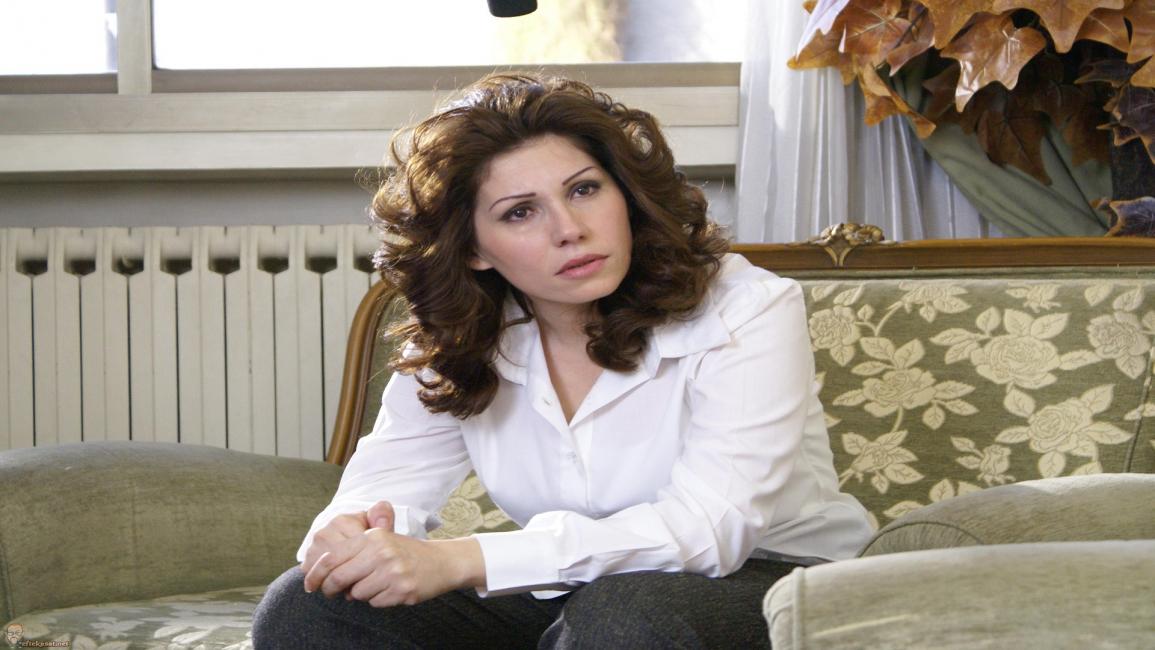The artist Yara Sabri recently announced her anti-regime stance during a television program, stating that her position has remained unchanged since the outbreak of the revolution. She emphasized that she is free in her opinions and does not align with any political faction or party, including those within the Syrian opposition. This declaration was met with support from many Syrians across different political ideologies, but it also drew strong condemnation from regime supporters, who accused her of siding with “saboteurs” and “terrorists” who, in their view, are working against Syria.
Over the years, the regime has dealt harshly with artists who oppose it—or even those who have chosen to remain neutral. While the government claims to be generous and welcoming to anyone wishing to return to Syria, opposition artists face numerous charges, including “supporting terrorism.” For those who wish to return, the price is clear: submission to the regime’s authority. Those unwilling to do so are left in exile, effectively unwelcome in their homeland.
Many prominent Syrian artists in exile, such as Maxim Khalil, Asala Nasri, Jamal Suleiman, Sawsan Irsheid, Fares al-Helou and his wife Sulafa Owaishek, and Kinda Alloush, have been unable to return to Syria. They live in constant fear of arrest and harassment, despite the regime’s reassurances. For these artists, the threat of imprisonment or worse remains a constant risk, even when the authorities claim to have eased restrictions on exiles.
Outspoken
The regime’s treatment extends not only to outspoken anti-regime artists but also to those who have remained neutral. Take the example of actor Taim Hassan, who refrained from publicly supporting Bashar al-Assad in interviews or on social media. Although Hassan is from the coastal region, which has strong ties to the regime, his silence led to a period of estrangement from the state apparatus. He worked outside Syria for years, only returning in 2020 to settle his status with the Artists Syndicate. Similarly, actor Abed Fahd, whose “opposition” stance kept him from visiting Syria, only resolved his situation in 2019. That year, he played roles in two series—Minute of Silence and When the Wolves Grow Old (Endama Tashikh Al The’ab)—inside Syria, marking a return to the fold.
Even actors like Bassel Khayat, who has consistently avoided publicly taking a political stance since the revolution in 2011, are denied entry to Syria. His silence and refusal to publicly support the regime have kept him from returning to his country, and this situation remains unchanged.
The regime’s crackdown extends beyond the living. Many artists who left Syria or passed away while in exile, such as May Skaf, Fadwa Suleiman, and the writer Fouad Humaira, have been erased from official memory. Syrian state television did not honour them upon their deaths, nor did it acknowledge their contributions to Syrian culture. This omission was not limited to artists; even the late director Hatem Ali, despite being buried in Syria, was ignored by state media because of his perceived opposition to the regime’s policies. Although mediation efforts by fellow Syrian artists allowed for his burial in Syria, state television never mentioned his name, refusing to acknowledge the artist’s legacy.
This censorship and suppression extend to Syrian television’s treatment of old works featuring opposition artists. State-run TV has banned the screening of such shows, and when they are aired on private channels, the names of opposition artists are often erased from the credits, and their scenes are edited out. This act of erasure reflects the regime’s refusal to separate art from politics and its determination to control the narrative, even if it means disregarding the rich, diverse history of Syrian drama, which was built by artists of varying political perspectives.
Private television channels may still broadcast some of these works, but they do so cautiously, aware of the regime’s scrutiny. Syrian radio stations, meanwhile, continue to ban any music by Asala Nasri, whose political views have led to her songs being blacklisted in her own country.
All of this underscores a central truth: the regime remains unable to tolerate the presence or legacy of any Syrian artist who does not conform to its political agenda. It continues to silence dissenting voices, erasing the contributions of those who refuse to bow to its authority, and punishing those who dare to speak out.
This article was translated and edited by The Syrian Observer. The Syrian Observer has not verified the content of this story. Responsibility for the information and views set out in this article lies entirely with the author.


